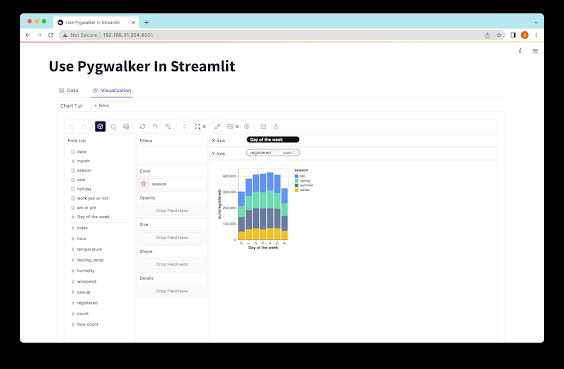Vector Database: Revolutionizing AI with Efficient Data Processing
# Vector Database: Revolutionizing AI with Efficient Data Processing As Artificial Intelligence (AI) gains momentum across various sectors, the need for data processing has become paramount. Traditional SQL databases are not efficient in handling unstructured data, which is a vital aspect of AI applications. Therefore, vector databases have emerged as a viable option, as they offer optimized data processing, which is essential for machine learning models. In this article, we will explore how vector databases work for AI, their benefits, and some popular options. ## What is Vector Database? Vector database is a data storage system that offers optimized processing of unstructured data. The system stores data in the form of vectors, which enable Artificial Neural Networks (ANN) to search for similar patterns quickly. The database uses Approximate Nearest Neighbor (ANN) search algorithms to find the most similar vectors based on the Euclidean distance or cosine similarity of the data points. ## How Vector Database Works for AI? Vector databases use ANN search algorithms to perform efficient data processing, which is crucial for various AI applications. The algorithm scales well with the increase in data size, making it ideal for handling large datasets. The vector database uses multi-tenancy and data isolation features to store high-dimensional data effectively. Multi-tenancy allows multiple users to share the same database, while data isolation ensures that users cannot access each other's data. Vector databases use APIs to enable seamless integration with various AI platforms, making it easy to implement machine learning models. Cloud-nativity is another critical feature of vector databases, which makes them suitable for cloud-based AI applications. The databases offer automatic scalability, which enables elastic scaling of resources based on the demand for computational power. Vector databases also offer tunability, which enables users to configure the system's algorithms to enhance its performance for specific use cases. Therefore, the database can be tuned for semantic search, which allows users to find similar data based on the context they are searching for. Vector search libraries such as FAISS, ScaNN, and HNSW are open-source libraries that offer high-performance search capabilities. These libraries use vector indices to represent the vector space, which enables fast search for nearest neighbors. The nearest neighbor search algorithm is critical for many machine learning models, such as image recognition, where identifying similar patterns is crucial. Vector search libraries are integrated with popular AI frameworks such as TensorFlow, PyTorch, and Apache Lucene to enable seamless integration with AI applications. > For more dtailes about AI tools, you migh want to read [Langchain](/posts/langchain). ## Benefits of Using Vector Database Vector databases offer several benefits when compared to traditional SQL databases. Here are some of the benefits: - Efficient Processing: Vector databases are optimized for processing unstructured data, which is an essential aspect of AI applications. The approximate nearest neighbor search enables fast search for similar patterns, making it ideal for machine learning models. - Scalability: Vector databases offer automatic scalability, which enables elastic scaling of resources based on the demand for computational power. Therefore, the system can handle large datasets without compromising its performance. - Tunability: Vector databases offer tunability, which enables users to configure the system's algorithms to enhance its performance for specific use cases. Therefore, the database can be tuned for semantic search, which allows users to find similar data based on the context they are searching for. - User-Friendly: Vector databases offer user-friendly features, such as APIs, which enable seamless integration with various AI platforms. Additionally, managed solutions are available, making it easy for users to deploy and manage the system without requiring specialized skills. ## Vector Databases for E-commerce Vector databases are gaining popularity in the e-commerce industry, where they are used to improve product recommendations and search capabilities. The databases enable e-commerce platforms to provide personalized product recommendations based on the user's browsing history and purchase behavior. Additionally, semantic search enables users to find products based on their context, making the search process more efficient. For e-commerce properties owners who needs AI assistance, other AI-based data analytics tools can also help you [create beautiful data visualization](/posts/data-visualization-example) with the power of AI-enhanced [Augmented Analytics](/posts/augmented-analytics). ## Popular Vector Database Options There are several options available for vector databases, including open-source and fully managed databases. Here are some popular options: ### Open Source Vector Database Milvus is an open-source vector database that offers efficient data processing and vector search capabilities. The database is built on top of FAISS and offers integration with popular AI frameworks such as TensorFlow and PyTorch. Additionally, Milvus offers software development kits (SDKs) for various programming languages, such as Python, Java, and C++, making it easy to integrate with projects. > For people who wants to learn more about Open Source, check out [Modin](/posts/modin) and [Open Source Data Visualziation tools](/posts/tableau-alternatives). ### Fully Managed Vector Database Vector Database is a fully managed vector database that offers efficient data processing and search capabilities. The database uses ScaNN to enable fast search for similar vectors and offers API integration with various AI platforms. Additionally, LangChain offers augmented analytics that enables users to derive insights from their data without requiring specialized skills. ## Conclusion [Vector databases](https://ift.tt/Zq8DgMa) are a game-changer for AI applications, as they offer efficient data processing and search capabilities for unstructured data. The databases use ANN search algorithms and vector indices to enable fast search for similar vectors, making them ideal for machine learning models. Furthermore, vector databases offer several benefits, including scalability, tunability, and user-friendliness. With the popularity of AI applications growing, vector databases are becoming an essential tool for efficient data processing.
Read more about Data Analysis
Read more about Data Analysis

Comments
Post a Comment